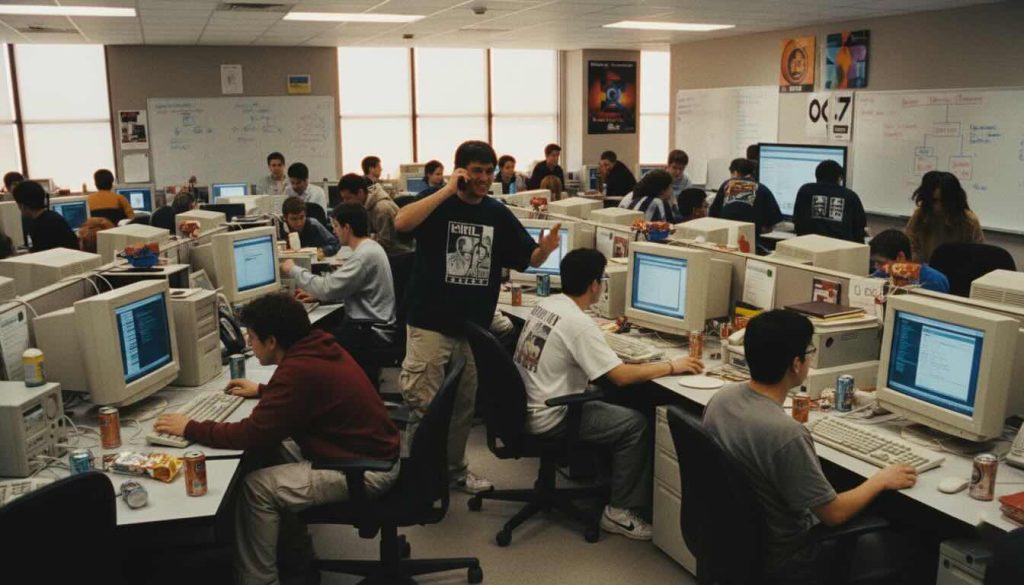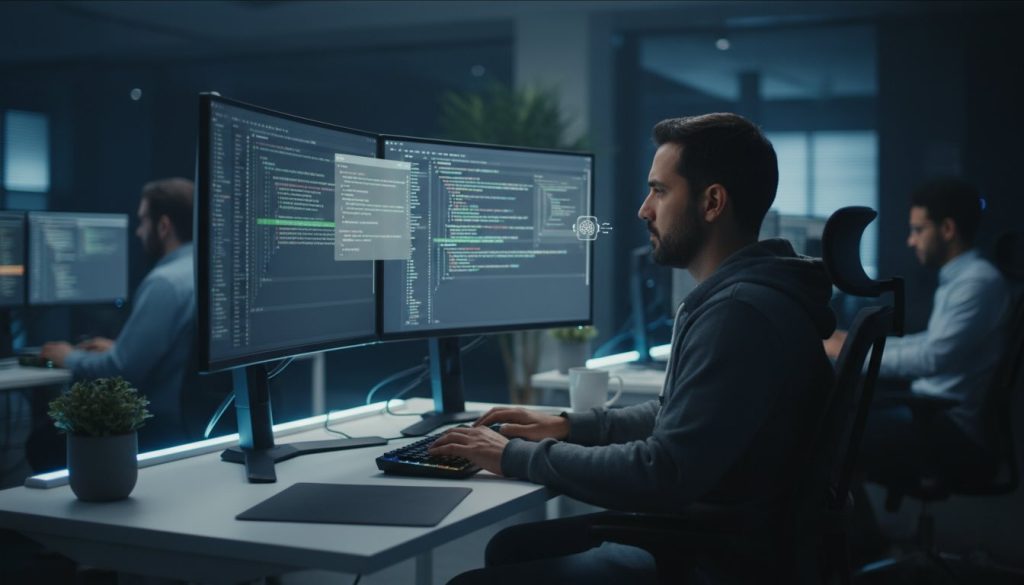| Insight | Why It Matters | Application | Tags |
|---|---|---|---|
| The tech job market is evolving faster than traditional education | Employers are prioritizing real-world AI and coding experience over formal degrees | Students and professionals need continuous skill upgrades through hands-on learning | #TechInside, #AIJobs, #FutureOfWork |
The era when a computer science degree could almost guarantee a stable career in technology is fading. In 2025, the job market for tech graduates is more competitive, more fragmented, and more unpredictable than ever before. While a CS degree remains valuable, it no longer ensures immediate employment or long-term job security. This shift reflects how the intersection of artificial intelligence, automation, and remote work has permanently reshaped the skills employers actually seek.
Background: When a CS Degree Was Enough
Two decades ago, computer science was one of the most reliable paths into the job market. Big tech companies and startups alike competed for graduates who could code, manage databases, or build applications. The demand far exceeded the supply, and students who could demonstrate solid academic credentials found themselves fielding multiple offers before graduation.
The rise of Silicon Valley and the global expansion of internet infrastructure created a surge of demand for software engineers. Universities built reputations around strong computer science departments, and graduates often transitioned smoothly into lucrative positions at companies like Microsoft, Google, or IBM.

Present: Skill Gaps and AI Automation Are Redefining Hiring
Fast-forward to 2025, and the story looks very different. AI-driven tools now automate much of what used to require a full team of developers. Companies use AI copilots for coding, generative models for system design, and automated testing platforms that replace dozens of manual tasks. The skills employers now prioritize have shifted dramatically from theoretical computer science to practical, project-driven expertise.
Recruiters are no longer impressed by academic transcripts alone. They want proof of adaptability, experience with emerging frameworks, and the ability to deploy AI safely and efficiently. According to several tech hiring surveys, up to 60% of employers now favor demonstrable portfolio projects or GitHub repositories over GPA or class rank.
Meanwhile, coding bootcamps, online certifications, and project-based learning platforms have disrupted traditional computer science education. Many successful professionals entering the AI, cybersecurity, and data science sectors today have non-traditional educational paths, supported by real-world portfolios instead of diplomas.

Future: Experience, AI Literacy, and Continuous Learning
Looking ahead, the computer science degree is evolving into just one piece of a broader career toolkit. The next generation of tech professionals will need more than algorithms and data structures—they’ll need fluency in AI frameworks, data ethics, and human–machine collaboration.
Employers are increasingly looking for AI literacy rather than rote technical knowledge. The most successful candidates are those who can use large language models, build automation systems, and solve business problems creatively with technology.
Universities are starting to adapt by integrating AI courses into core curricula, but academic reform moves slower than industry change. By the time a new course syllabus is approved, tools and platforms may already have changed. This time lag makes lifelong learning essential for every professional in technology.
In the next decade, success in tech will depend less on where you studied and more on how fast you can learn, adapt, and build.

The Bigger Picture:
The transformation of the tech labor market shows how fast the value of formal education is being rewritten in the AI era. While computer science remains an essential foundation, its role as a job guarantee has ended. Today’s U.S. tech industry rewards applied knowledge, creative problem-solving, and continuous learning. AI is both the challenge and the opportunity it reduces the need for some technical roles but creates new categories of work that blend coding, strategy, and innovation.
For students and professionals alike, the message is clear: credentials alone won’t carry you. The future belongs to those who evolve as fast as the technology they build.
#TechInside #AIJobs #FutureOfWork #ComputerScience #ArtificialIntelligence #JobMarket2025 #Upskilling #DataScience #TechTrends #Automation #DigitalTransformation #EdTech #FutureSkills #AICareers #TechEducation









0 Responses
No responses yet. Be the first to comment!